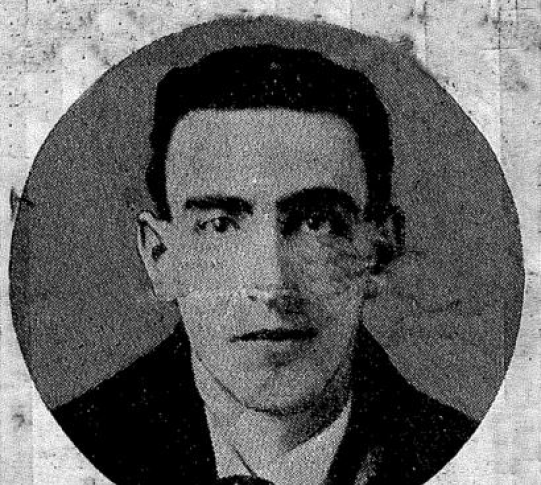
On November 19, 1918, two U.S. Army soldiers walking on the Interstate Bridge witnessed two subjects rob the bridge tender at gunpoint before racing off southbound into Oregon in their vehicle. The soldiers ran back to their barracks in Vancouver, Washington, and reported the robbery to their commanding officer, who then dispatched military police to the scene.
Deputy Frank Twombley, who was conducting traffic enforcement a few miles away from the bridge and was unaware of the robbery, observed the vehicle speed by his location. At approximately 2245 hours, witnesses reported seeing Deputy Twombley pull up alongside the vehicle on his motorcycle and raise his hand to signal the driver to stop the vehicle. Three shots were then fired from the vehicle at Deputy Twombley causing him to crash. The suspects continued on in their vehicle towards downtown Portland.
The military police officers who were searching for the suspects then came upon Deputy Twombley just after he had been shot and was being loaded into a vehicle by citizens. Deputy Twombley was driven to a nearby hospital and was pronounced dead upon arrival. The Multnomah County Commissioners authorized a $1,000 reward for any information leading to an arrest, and the Interstate Bridge Commission offered an additional $1,000 reward.
Thanks to several tips from the public, on November 25, 1918, MCSO detectives identified and located the two suspects, John and Augusta Laird, at their residence at 1027 Belmont Street. The couple was arrested without incident and Augusta offered a full confession of the murder and bridge tender robbery. Augusta also connected her husband to a robbery of a Northern Pacific RR train in Seattle on September 23, 1918. John Laird allegedly stole $6,000 in that robbery. Further confession by Augusta revealed that John was planning an elaborate blackmail and kidnapping scheme in which he planned to extort money from the families of several prominent Portland businessmen. Augusta was not charged in the murder of Deputy Twombley in exchange for her testimony against John and her continued cooperation with investigators.
John Laird had been convicted of robbery in Lewis County, Washington, in 1915 under the alias J.K Giles. He was given a 5-to-10-year sentence and sent to a Washington State Prison in Walla Walla, WA. John was later paroled in August of 1918. On September 9, 1918, a $50 warrant was issued for his arrest after he violated his parole, but John remained free until his arrest for the murder of Deputy Twombley.
John Laird was convicted of the murder of Deputy Twombley on January 13, 1919, and was sentenced to life in prison at the Oregon State Penitentiary.
Deputy Twombley had only been a Deputy Sheriff for six months. He was survived by his wife and child.
